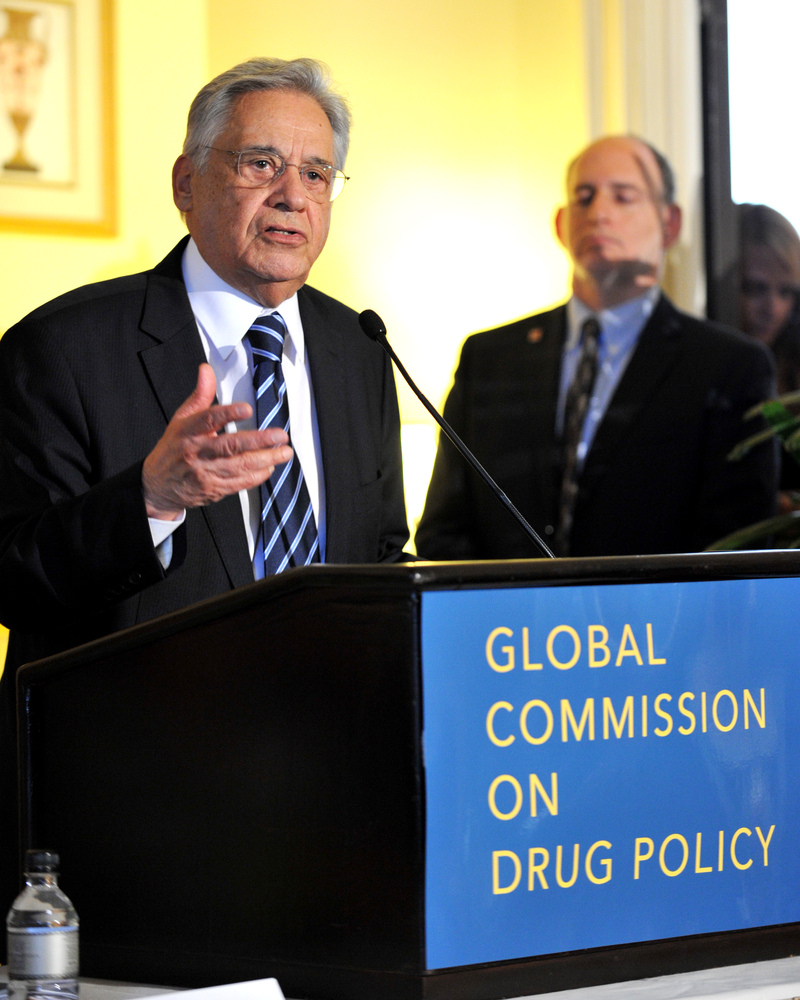 Only 3 percent of U.S. drug defendants in federal cases chose to go to trial instead of pleading guilty in 2012, according to a new report from Human Rights Watch.
Only 3 percent of U.S. drug defendants in federal cases chose to go to trial instead of pleading guilty in 2012, according to a new report from Human Rights Watch.The small number begins to make sense if you consider the consequences faced by drug defendants convicted in court, argues the report's author, Jamie Fellner.
“Prosecutors can say, ‘Take these 10 years or, if you get a trial and are convicted, you’re going to look at life,’” said Fellner, an attorney who specializes in criminal justice issues at Human Rights Watch. “That’s a pretty amazing power that unfortunately they are more than willing to wield."
The effect, she argues, is that prosecutors essentially “force” defendants to plead guilty.
Last year, drug defendants in federal cases who went to trial and lost were sentenced to more than three times as many years in prison as those who took a plea, according to the report’s analysis of data from the United States Sentencing Commission, a government agency.
And the majority of those who did go to trial -- 89 percent of them -- lost.
The percentage of defendants in 2012 who fought their charges is likely an all-time low. In 1980, the first year for which the report reviewed the relevant data, the percentage of federal drug defendants who pleaded guilty was slightly more than 60 percent, and it has risen steadily since then.
The advent of mandatory-minimum sentencing laws in the mid-80s is largely responsible for the steady increase in guilty pleas, according to Fellner. Such laws required judges to impose harsh, predetermined sentences on people convicted of the distribution and, in some circumstances, possession of illicit drugs, while giving prosecutors the ability to offer defendants smaller sentences as part of a deal.
“If you can get someone to acknowledge guilt without the burden and expense of a trial, without having to marshal witnesses and line up witnesses, and without risking an acquittal, why not?” said Fellner. “You don’t have the cost of a trial, it doesn’t take the time and resources, and it increases the notches on your belt of how many convictions you’ve gotten.”
But in reality, the government lacks the resources needed to try everyone who is charged with a drug offense, said Steven Jansen, the vice president and chief operating officer of the Association of Prosecuting Attorneys, a professional group based in Washington.
“Justice would almost stand still if we took the majority of our cases to trial,” he said.
Jansen noted that efforts are underway to reform the nation’s mandatory-minimum sentencing laws. Lawmakers from both parties have introduced bills that would scale back the reach of those laws, and U.S. Attorney General Eric Holder has directed federal prosecutors to shift their attention away from drug cases.
“Our system is looking at mandatory minimums and what we’re going to either do or not do about them,” Jansen said. “But a defendant is really not forced to accept a guilty plea. Obviously they have a right to go to trial no matter what the sentence is.”
Original Article
Source: huffingtonpost.com
Author: Saki Knafo
No comments:
Post a Comment